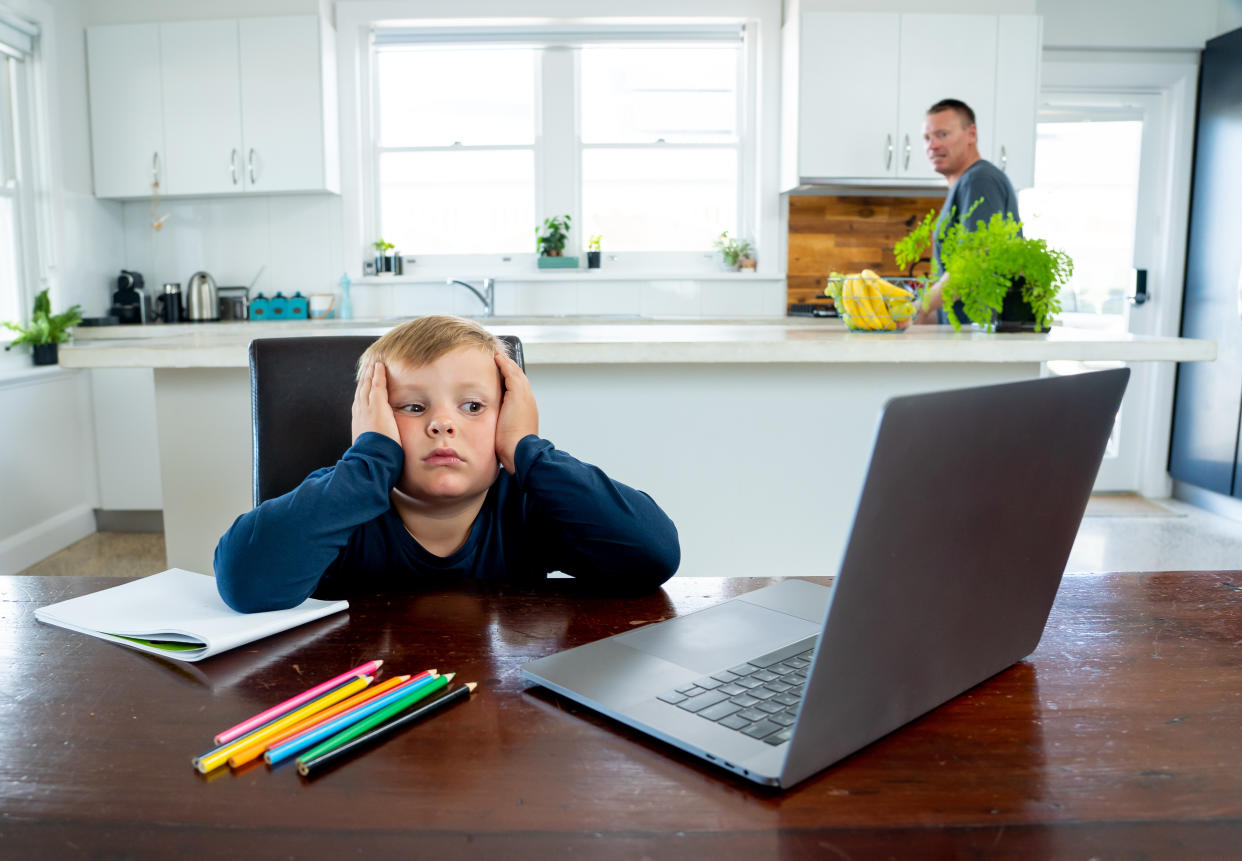So your kid hates video chats. Now what?

Many parents and students across the country were shocked when schools suddenly closed due to the coronavirus outbreak. And now, a growing number of states have said their buildings will be closed for the rest of the school year.
Still, educators are getting their footing, and many schools are turning to online learning. Kids across the country are doing virtual assignments and interacting with teachers and their class through video chat. It sounds great in theory but…some kids don’t like it.
If your child tries to avoid video chatting for school or flat-out hates it, there could be a few reasons for it:
They’re really shy: “A lot of people don’t like to put in the spotlight but, with video chatting, kids can be forced to talk in front of an entire class and see all of their faces looking at them on the screen while they do talk,” Gina Posner, MD, board certified pediatrician at MemorialCare Orange Coast Medical Center in Fountain Valley, Calif., tells Yahoo Lifestyle.
They don’t like looking at themselves while they talk: Video chatting also showcases your own face, so users are watching themselves talk while they do it. “That can be uncomfortable,” Posner says. “It’s like looking at yourself in the mirror while you talk.”
They’ve never liked video chatting:“For most kids, video chatting that occurred up to this point was from parents forcing their kids to say ‘hi’ to a family member or friend,” Ashanti Woods, M.D., a pediatrician at Baltimore's Mercy Medical Center, tells Yahoo Lifestyle. “Video chatting usually takes kids away from doing something they enjoy more, and they didn’t want to do the chat in the first place.” Those negative associations can carry over to any kind of video chat—including online learning, he says.
Take these steps to help your child get used to online learning:
Team up with their teacher: Posner recommends emailing your child’s teacher to give them a heads up that your child doesn’t feel 100 percent comfortable with video chatting. “It’s OK to ask, ‘Is it possible not to call on him or her for a little while so they can observe and learn without being the focus of other kids?’” she says.
Practice with friends: Doing video calls with several of your child’s friends at once may also help them get used to the setting, as well as being comfortable with seeing all of those faces looking at them, Posner says.
Focus on fun positives: Pointing out the perks of virtual learning can get your child into the concept, too, Posner says. Kids can get excited about the idea of wearing their PJs or PJ bottoms while they learn or, on the flip side, they might like getting dressed up for class after days of wearing sweats, she says.
Turn to bribes: If it’s been a serious struggle to get your child to participate in video chats for school, Woods says it’s OK to bribe them a little. “Often a reward, like stickers or promising your child they can watch a little more TV before bed, can help,” he says. You can also frame virtual learning as a precursor to other fun things, like pointing out to your child that you can all go outside and play as soon as school is done, Woods says.
If your child’s school has gone to virtual learning, there’s unfortunately no way to avoid it. “It’s tough. On some level, kids are just going to have to get used to it because it’s going to be the normal way of learning for a bit,” Posner says.
For the latest coronavirus news and updates, follow along at https://news.yahoo.com/coronavirus. According to experts, people over 60 and those who are immunocompromised continue to be the most at risk. If you have questions, please reference the CDC and WHO’s resource guides.


